Earth Sciences

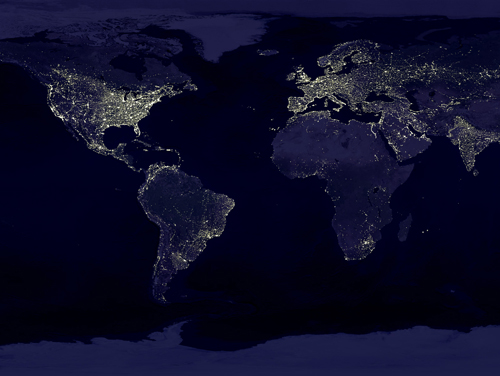
Programs
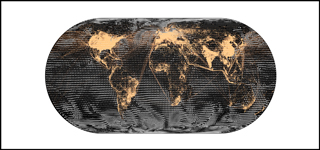
Forging Community Consensus for an Integrated GHG and Winds Mission
This workshop seeks to bring together expertise in wind observations and trace gas observation and attribution. Our work here will inform the design of a new satellite mission that will observe greenhouse gases and winds simultaneously.

Managing Soil Organic Carbon for Climate Change Mitigation - Multiscale Quantification Through Remote Sensing, AI and Biogeochemical Models
This study will be used to develop a credible framework for a comprehensive SOC data analysis, modeling and prediction system that will enable accurate tracking of SOC changes from landscape to regional and national soils. The study will review the current state-of-the-art in model-data systems for soil carbon measurements, assess key knowledge and technical gaps, and develop an operational blueprint for a novel integrated modeling and data fusion system that can be applied at landscape to regional scales.

Developing a Continuity Framework for Satellite Observations of Climate
The goal of this study program is to help accelerate discussions and plans for a greater and more impactful U.S. contribution to the global climate observing system. In this context, “climate” includes observations that support climate science and process understanding, as well as monitoring for environmental situational awareness, climate services, adaptation measures, and mitigation assessments.
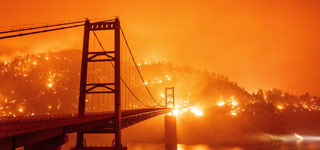
Real Time Detection and Tracking of Fires that Matter
This study builds upon findings from the Moore Foundation Fire Immediate Response Workshop and investigates innovation for detecting and tracking costly fires that affect human life, infrastructure, and the Earth system.

COVID-19: Identifying Unique Opportunities for Earth System Science
The goal of this study is to assemble an interdisciplinary team of scientists, researchers and engineers to address the impact of COVID-19 response on the climate system, evaluate the system recovery over the next 1 - 5 years, formulate the hypotheses, and identify the measurements that can be obtained, leveraged and coordinated to test these hypotheses.

Sensing Forest Water Dynamics from Space: Towards Predicting the Earth System Response to Droughts
The focus of this study is to increase our current capacity to understand and predict the response of forest ecosystems to droughts and links between water and carbon processes in the earth’s biosphere and to identify space-borne observational approaches based on recent breakthroughs in remote sensing measurements of vegetation water content.
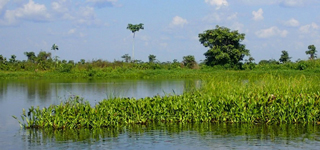
Unlocking a New Era in Biodiversity Science: Linking Integrated Space Based and In-Situ Observations
The focus of this study program is to advance progress towards the development of a global biodiversity observation system that couples space-based and ground-based approaches to quantifying biodiversity, to identify gaps in biodiversity traits and EBVs, and to explore how the fusion of diverse remote sensing measurements can contribute to monitoring biodiversity change.
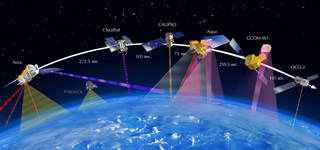
Next-Generation Approach for Detecting Climate-Carbon Feedbacks: Space-Based Integration of Carbonyl Sulfide (OCS), CO2, and Solar Induced Fluorescence (SIF)
The KISS workshop will be used to articulate a vision for coupled analysis of carbonyl sulfide (OCS) retrievals with satellite-based SIF and CO2 data, providing a new window into the carbon cycle and a revolution in our understanding of carbon-climate feedbacks and crop monitoring.

Exploring New Multi-Instrument Approaches to Observing Terrestrial Ecosystems and the Carbon Cycle from Space
The focus of this study is exploring new multi-instrument approaches to doing ecosystem science from space. We will frame this more general topic around the amazing opportunity that in a few years, we could have simultaneous observations of ecosystem structure, functioning, and composition from the ISS.
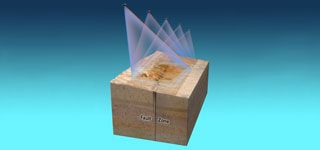
Gazing at the Solar System: Capturing the Evolution of Dunes, Faults, Volcanoes and Ice from Space
The goals of this study program are to develop the science that can be teased out of spaceborne gazing, specific types of targets and applications, the resolution and spectral bands needed to achieve the science, and possible instrument configurations for future missions.
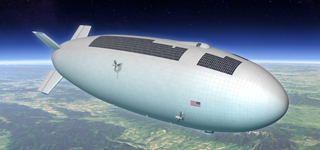
Airships: A New Horizon for Science
This study aimis to identify science observational/experimental projects that are uniquely addressed by airship vehicles, and determine which of these science goals could be simultaneously accommodated in one platform.
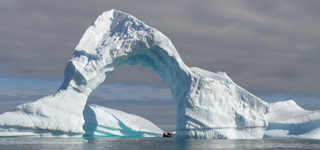
The Sleeping Giant: Measuring Ocean Ice Interactions in Antarctica
This study will explore integrated field programs and numerical studies to describe high frequency variability at the ocean-ice interface in Antarctica.
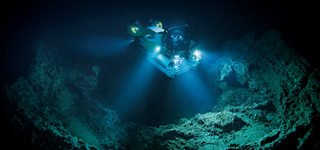
Satellites to the Seafloor: Autonomous Science to Forge a Breakthrough in Quantifying the Global Ocean Carbon Budget
This study brings together scientists, who understand the imperative and scope of quantifying the global carbon budget, with technologists, who may be able to glimpse a possible way of solving it.
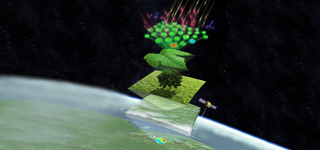
New Methods to Measure Photosynthesis from Space
The focus of this study is on a newly developed capacity to monitor chlorophyll fluorescence from terrestrial vegetation by satellite.
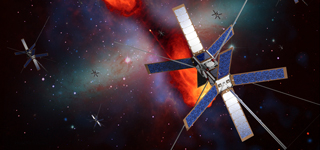
Small Satellites: A Revolution in Space Science
This study will bring together space scientists, technologists, and mission designers across two workshops to conceive novel scientific observations and to resolve the technical roadblocks for new observations that are inaccessible to traditional spacecraft systems, yet enabled by small satellite systems.

Monitoring of Geoengineering Effects and their Natural and Anthropogenic Analogues
This study focuses primarily on examination of concepts based on managing solar radiation into the climate systems.
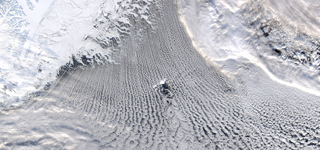
Innovative Satellite Observations to Characterize the Cloudy Boundary Layer
This study will identify the technology developments required to obtain the space-borne measurements needed to significantly reduce this key climate projection uncertainty.
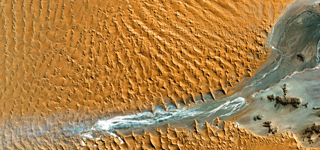
Monitoring Earth Surface Changes from Space
The objective of this study is to imagine remote sensing systems and processing techniques that will produce observations (Optical, SAR, or Lidar) with optimal spatial and temporal coverage, ground resolution and registration accuracy to measure deformation and surface changes that are relevant to investigate the internal and external dynamics of Earth and potentially other planets.
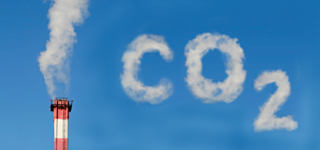
Quantifying the Sources and Sinks of Atmospheric CO2
The participants reviewed the potential of spacebased and sub‐orbital observational and modeling approaches to monitor anthropogenic CO2 emissions in the presence of much larger natural fluxes from the exchange of CO2 between the land, atmosphere, and ocean.

Climate Feedbacks and Future Remote Sensing Observation
The goals of this study is to bring together scientists from different branches of the climate research community to address key problems in the physics of climate feedbacks.
Lectures & Webinars
How a Team of Young Caltech/JPL Researchers Transformed the Field of Earth Observation with Spaceborne Radars
November 2, 2021
Speaker: Dr. Charles Elachi -
Professor of Electrical Engineering and Planetary Science (Emeritus, Caltech);
JPL Director (2001-2016)

Human Impacts on the Atmosphere as Revealed by COVID-19
June 9, 2020
Panelists: Paul Wennberg (Caltech),Christian Frankenberg (Caltech/JPL), Annmarie Eldering (JPL)
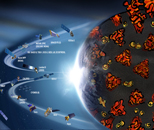
Watching the Earth Breathe from the International Space Station
June 26, 2019
Dr. Annmarie Eldering - JPL
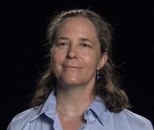
Biodiversity: Perspectives of a Techie
March 20th, 2019
Speaker: Dave Thau - Data and Technology Global Lead Scientist, WWF

Climate Change Impact on Past Civilizations: Lessons from Space Data and Archaeology
May 24th, 2016
Speaker: Ronald G. Blom, Ph. D. - Principal Scientist (Retired), Jet Propulsion Laboratory

Fire and Ice: Exploring Volcanoes on Earth and the Solar System
May 14, 2015
Speaker: Rosaly M. C. Lopes, Senior Research Scientist, Manager for Planetary Science NASA/Jet Propulsion Laboratory

Optical Remote Sensing of Earth and Planetary Surfaces
June 17, 2014
Speaker: Dr. Jean-Philippe Avouac,
Earle C. Anthony Professor of Geology, Caltech

The Past, Present and Future of Understanding Earthquakes Using Space Observations
April 14, 2014
Speaker: Dr. Andrea Donnellan, JPL

Modern Methods of Observing Earthquakes: What We Have Learned about Haiti and Chile using Seismology and Space Observations
March 30, 2010
Moderator: Lucile Jones, U.S. Geological Survey/Caltech
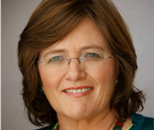
Monitoring Future Climate Treaties
March 2, 2010
Panel Moderator: Paul Wennberg, Caltech

The MSU Debate, Climate Auditing, and the Freedom of Information Act
September 3, 2009
Speaker: Dr. Ben Santer, Program for Climate Model Diagnosis and Intercomparison Lawrence Livermore National Lab

Co-Sponsored Events
Symposia
Plan B: Engineering a Cooler Earth
December 9, 2017
California as Seen from Space - Delivering Actionable Science
September 14, 2009



